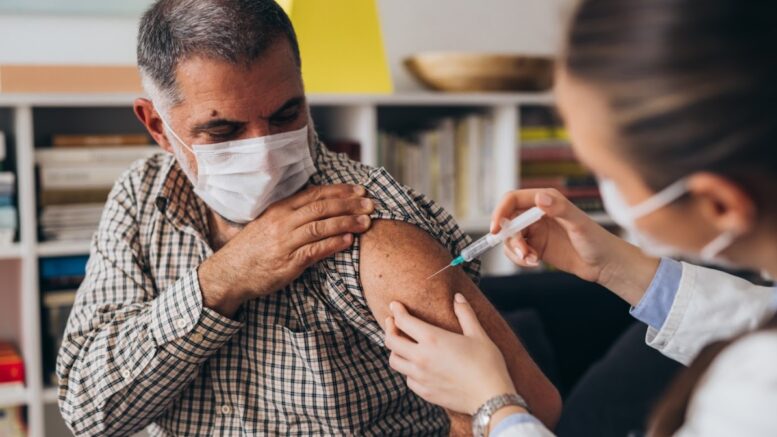In the wake of recent global health crises, the role of vaccines in controlling viral outbreaks has never been more critical. From influenza to COVID-19, the development and distribution of vaccines have proven essential in reducing illness, hospitalizations, and deaths. However, recent federal funding cuts to health agencies threaten to undermine these advancements, potentially leaving the U.S. more vulnerable to future outbreaks.
The Power of Early Vaccination
The availability of effective vaccines during the early stages of an outbreak can dramatically slow the spread of disease. Rapid immunization reduces the number of susceptible individuals in a population, creating a form of “herd immunity” that limits transmission. For example, countries that rolled out COVID-19 vaccines early saw lower hospitalization rates and a reduced burden on healthcare systems compared to regions with delayed access.
However, vaccine availability is not just about production. Distribution, infrastructure, public willingness to be vaccinated, and equitable access across regions all influence the overall effectiveness of an immunization program. Without addressing these factors, even a highly effective vaccine may fail to prevent widespread outbreaks.
Innovation in Vaccine Development
Recent advances in vaccine technology offer hope for more rapid and flexible responses to emerging viruses. mRNA vaccines, viral vector vaccines, and protein-based vaccines have accelerated the timeline from virus identification to mass immunization. For instance, the mRNA platforms used in COVID-19 vaccines allowed scientists to create and test vaccines within months, rather than the years traditional methods often require. However, without US government support, these advances may not reach their full potential or be fully available in a crisis.
Only with clear federal government backing can these technological advances result in faster responses to future pandemics. Scientists are exploring “universal” vaccines for influenza and other viruses, aiming to provide long-lasting protection against multiple strains. Such developments could significantly reduce the need for repeated vaccinations and limit the severity of outbreaks.
Challenges in Global Access
Even with advanced vaccine technology, global access remains a challenge. Disparities in production capacity, cold chain requirements, and healthcare infrastructure often leave low- and middle-income countries at a disadvantage. During COVID-19, wealthier nations secured the majority of early vaccine supplies, while many developing regions faced significant delays.
Addressing these inequalities is critical. Strengthening global cooperation, expanding manufacturing capabilities, and investing in local healthcare infrastructure can help ensure vaccines reach all populations quickly, ultimately reducing the global impact of future outbreaks.
Behavioral and Social Considerations
Vaccine effectiveness is also influenced by public perception and trust. Misinformation, fear of side effects, and cultural attitudes toward vaccination can reduce uptake, limiting the potential benefits of even widely available vaccines. Public health campaigns, clear communication from trusted sources, and community engagement are essential to encourage vaccination and maintain high coverage rates.
Impact of Federal Funding Cuts on Vaccine Development
Recent federal funding cuts have significantly impacted vaccine development and public health preparedness. In 2025, the Trump administration announced the termination of 22 mRNA vaccine development projects, worth nearly $500 million, through the Biomedical Advanced Research and Development Authority (BARDA). These cuts have halted promising research into vaccines for diseases such as COVID-19 and influenza, potentially delaying the availability of new vaccines in the future.
Furthermore, the National Institutes of Health (NIH) has experienced budget reductions, leading to a decrease in the number of new research projects funded. In 2025, the NIH awarded fewer grants, with only the top 4% of proposals receiving funding, down from approximately 9% in previous years. This shift has left many promising studies unfunded, including an mRNA vaccine trial for a fatal childhood brain cancer, despite strong scientific endorsements.
Consequences for Public Health
The reduction in funding for vaccine research and development has broader implications for public health. Experts warn that these cuts will impair efforts to prevent chronic diseases and respond to national and global health threats. The Centers for Disease Control and Prevention (CDC), which distributes 80% of its funding to local and state health departments, has faced a 53% funding cut, eliminating 61 programs and reducing agency staff by 16%. This has weakened disease tracking, emergency preparedness, and public health guidance, leaving the nation less safe and more vulnerable to disease outbreaks.
Additionally, the federal government’s decision to remove the COVID-19 vaccine from the recommended immunization schedule for healthy children and pregnant women has raised concerns about the nation’s preparedness for future pandemics. Experts argue that such decisions, made without normal scientific review processes, undermine public trust in vaccination programs and may lead to lower vaccination rates.
Looking Ahead
As the world faces an increasingly interconnected landscape of emerging infectious diseases, vaccines will remain a cornerstone of outbreak prevention and control. However, recent federal funding cuts threaten to undermine these efforts. Continued investment in vaccine research and development, coupled with equitable distribution and public trust, is essential to mitigate the impact of future viruses. By learning from past experiences and investing in both science and infrastructure, we have the opportunity to protect global populations and limit the devastation caused by future outbreaks.
In essence, the future of viral outbreaks may hinge not only on the speed of scientific discovery, but also on our ability to ensure that vaccines are accessible, trusted, and effectively deployed worldwide. Without sustained federal support for vaccine development and public health infrastructure, the nation risks being unprepared for the next global health crisis.
